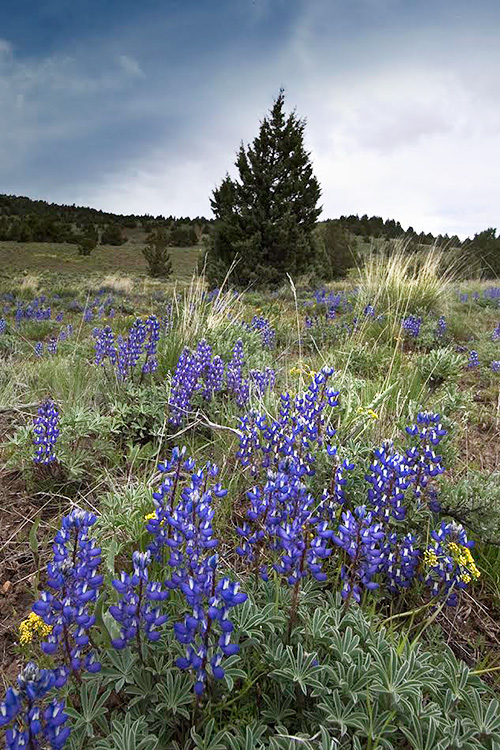EarthShare Oregon
 EarthShare Oregon engages people at their workplaces, bringing new support to environmental endeavors throughout your local community, across Oregon, and around the world. Through a single gift to EarthShare, you can easily support more than 100 of the best environmental organizations. View what a donation can accomplish.
EarthShare Oregon engages people at their workplaces, bringing new support to environmental endeavors throughout your local community, across Oregon, and around the world. Through a single gift to EarthShare, you can easily support more than 100 of the best environmental organizations. View what a donation can accomplish.
Please invest in EarthShare today to help us plant more trees, recycle more waste, move more quickly to clean energy, protect more threatened land, and safeguard more clean water.
Plus, when you give at least $120 per year (that’s just $10 per month!) through EarthShare Oregon, you’ll receive a year of premium access to the Chinook Book mobile app for free. You’ll get dozens of fabulous coupons for your favorite local businesses directly on your iPhone or Android device. Thanks to Neil Kelly and Chinook Book for making it possible!
Not only will you be protecting Oregon’s environmental legacy, you’re also inviting and inspiring your co-workers to share in that responsibility.
Illustrations of how EarthShare Oregon helps the community
EarthShare member charity: Friends of Outdoor School

New EarthShare Oregon member Friends of Outdoor School is making it possible for 36,000 Oregon students to attend Outdoor School each year, an 8,000-student increase over the previous year. The organization acts as the key connection between Outdoor School and the larger community of individuals, businesses, nonprofit organizations, and government agencies that support Outdoor School programming.
The following is the personal story of Jennifer “Pheff” Basham: sixth-grade ODS attendee; volunteer Student Leader; ODS Program Leader; Field Instructor; Site Supervisor; and current MESD ODS Program Supervisor:
“I owe so much of who I am today to the Outdoor School Program! My career, husband, and leadership skills were all found at Outdoor School. Who would have known that a choice I made 15 years ago would have shaped me into the person I am today?
“Becoming a high school Student Leader was the best thing that I could have done during my high school years. While at Sandy River as a Student Leader, I learned how to care for students, and that I had the power to impact people, even in the smallest of ways. I learned how to teach about plants and how vital it is for students to have someone to look up to.
“Looking back, I realized that I, too, needed mentors at that time. At Outdoor School, I found an amazing staff who became my mentors, who supported and guided me to becoming the “real” me. Because of those three weeks in high school, I went on to work at summer camps and came back to Outdoor School as a staff member.
“As a staff member, I was able to give to students and Student Leaders what was given to me: confidence, leadership, understanding, acceptance, joy, inspiration, support, pride in myself and others, and a love for nature and teaching. I became an elementary teacher because of the Outdoor School program. But more importantly, I was a part of something greater than I was.”
Friends of Outdoor School is one of more than 100 environmental nonprofits in the EarthShare Oregon network. To learn more about EarthShare Oregon, watch our video.
EarthShare member charity: Institute for Applied Ecology

Jared, an inmate at Snake River Correctional Institution in Ontario, Oregon helps the Institute for Applied Ecology (IAE) grow sagebrush for greater sage-grouse habitat restoration. For Jared, “being with the plants, thinning, watering… it’s an escape from everything and it’s calming. I’ve become more aware of my role on this earth, and conserving water, recycling, being more mindful of things I do that’ll help.”
IAE staff also work with young women at Oak Creek Youth Authority in Albany to grow and plant early blue violets for critically endangered Oregon silverspot butterflies on the Oregon coast; one of the women said, “I now realize I can do good things and can turn to nature rather than turning to drugs.”
By partnering with the Sustainability in Prisons Project Network, IAE brings conservation biology and nature into prisons. The project provides a voluntary opportunity for incarcerated men, women and teenagers to earn an hourly wage while learning and broadening their resumes for greater future job success. By engaging inmates in the growing and planting of endangered and native species for habitat restoration, we give them a chance to rebuild their lives while restoring the earth.
Amy and Suzanne, two inmates at Coffee Creek Correctional Facility in Wilsonville now plan to pursue degrees in botany once they are released, because of what they’ve learned through IAE’s Sustainability in Prisons efforts.
Robert, a former biologist now in a prison in Idaho, didn’t go outside for three years until reconnecting with science and nature by helping IAE grow 60,000 sagebrush destined for greater sage-grouse habitat in Idaho.
Life-changing stories like these happen each year as IAE’s restoration work continues. We began working with one prison, and are expanding to ten in 2016 across 8 states, especially in Oregon. IAE benefits endangered species, restores our ecosystems, and changes lives… one habitat, one species and one person at a time.
Institute for Applied Ecology is a member of EarthShare Oregon, our state’s only umbrella group of environmental charities.
EarthShare member charity: The Nature Conservancy in Oregon

Resilient landscapes: Mapping for climate change
To inform future conservation investments, The Nature Conservancy has identified areas in the Pacific Northwest that collectively and individually sustain native biodiversity in our changing climate. This project assessed and mapped the resilience of landscapes to climate change across 227 million acres in six states. Out science team has learned that sites with both complex topography and connected land cover are places where conservation is most likely to succeed in the long term.
For decades, land managers have used traditional seeding methods to restore native sagebrush grasses. However, these methods are costly and ineffective. A single wildfire restoration can cost $50 million or more, and land managers are seeing very low emergence of newly planted seeds. The Nature Conservancy and the U.S. Department of Agriculture have brought a new method to the table – one that improves success by as much as 70%. Using a pasta machine and the right mixture of soil and nutrients, scientists are creating seed pods – or “seed raviolis,” as we affectionately call them. These seed pods are broadcast across the landscape, and the protective coating and the seeds’ collective strength in the pod drastically improve emergence rates through crusted soil and overall sagebrush restoration efforts. When traditional methods stop working, you have to look to something new, something innovative. And now, land managers facing similar problems across the globe are looking to us.
The Nature Conservancy in Oregon is a member of EarthShare Oregon, our state’s only umbrella group of environmental charities.
These are just two of more than 100 green causes you can help with an EarthShare pledge through PCC’s giving campaign. Thank you for considering a gift!
